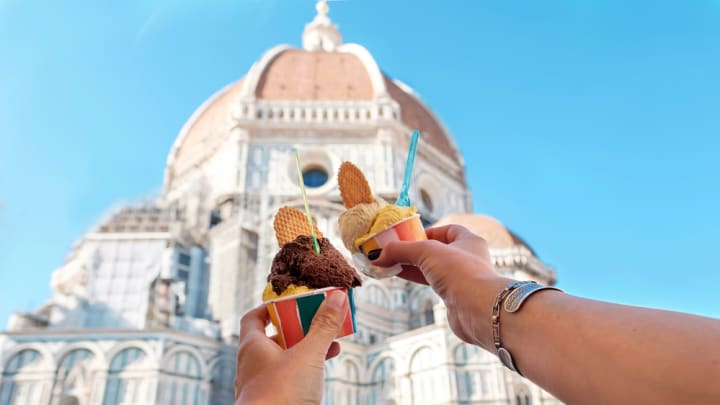Cooking While Traveling: A Beginners Guide

With the COVID-19 pandemic seemingly winding down, many of us are keen to fulfill the wanderlust left by more than two years of travel restrictions. Others find themselves on the road for work or business. While being able to travel freely may seem like a breath of fresh air, the question of what to eat while traveling can be problematic as the food offered in many restaurants and hotels throughout the world is not necessarily the healthiest.
Some of us may find ourselves traveling in a part of the world where food may not be as hygienic as we would prefer or that the local cuisine may not be to our liking, others may find themselves bound by dietary restrictions such as vegetarianism or religious restrictions such as Kosher or Halal. Still, others may simply want to avoid the high prices of restaurants catering to tourists. Whatever the case, cooking for yourself while abroad doesn’t have to keep you from enjoying your time abroad, assuming you follow a few simple guidelines.
Research First
Fortunately, the internet will often provide a nearly endless source of information about the local food situation where you will be traveling. This may include information about the food available at local grocery stores and recipes of food you can cook there, blogs written by people who have traveled to this area before describing their experiences, or recipes of dishes you can prepare with local ingredients.
Taking the time to scope out the food situation where you are going is perhaps the most important aspect of cooking while traveling since it will allow you to enter your surroundings prepared and ensure that you can buy ingredients that meet your dietary, taste, and budgetary preferences as quickly as possible.
Recipe apps, such as the Cookbook App, provide a valuable tool for planning what to eat in different parts of the world and managing various recipes. Having lists of your meals and ingredients in your pocket at all times will make buying food simpler while on the move.
Where You Stay Matters
Decades ago, accommodations while traveling were largely restricted to hotels and hostels offering limited options for those wishing to cook while traveling. In recent years however the options available have expanded to include a range of accommodation options including Airbnbs, short-term rentals, guest houses, and apartment-swapping, many of which include personal kitchens.
Staying in accommodations with adequate kitchens will be a huge asset for those wishing to prepare their food themselves. While hostels often include a communal kitchen that can adequately meet most people’s requirements, rental units may provide a more extensive cooking experience for those willing to spend a bit more.
However, those staying in hotels need not give up on the idea of preparing food for themselves. Many hotel rooms include a refrigerator, microwave, and water heater which can be used to boil water for simple dishes like oatmeal and rice while simple salads can be easily prepared without heating. Phoning in advance to understand what each accommodation offers is critical to success.
Take What You Need from Home
At times, ingredients or basic cooking tools may be unavailable or expensive when you are traveling. While countries in South East Asia or the Middle East may have spices you want to experiment with, some travelers may also prefer to stick with what they know or may simply wish to cut time from having to buy ingredients or kitchenware by bringing their own.
Bringing a few basic, easy-to-transport ingredients with you may go a long way in easing the experience of cooking during your travels.
Keep it Simple
For those traveling on a budget or wishing to maximize time spent sightseeing, it is advisable to keep the dishes you prepare simple and build them around simple foods like eggs, beans, rice, or noodles which are widely available and affordable throughout most the world. Dishes prepared with these staples can usually be prepared quickly and cheaply.
Sticking to familiar ingredients for the base of your meals does not mean you have to sacrifice eating interesting and tasty food. If you want to infuse your creations with local flavors, adding local species and ingredients to the simple foods listed above can allow you to experience the taste of your new environment while keeping it cheap and simple.
Save Your Leftovers
Being able to save leftovers for the next meal will make life much easier, minimizing the amount you have to cook. At times you may find yourself with more food than you thought you would have. At others, you may wish to prepare more than one meal at once, leaving you free to explore the local environment in the coming days. An important aspect of this is to bring ziplock bags or some other form of storage that takes minimal space and can be used to preserve leftovers for future meals.
Conclusion
The affordability of air travel in recent years has made budget tourism more affordable than ever before, allowing people to see corners of the world more easily than ever before. However, for various reasons, whether budgetary or religious restrictions, taste preferences, or health, many wish to control what they eat while traveling. Following the guidelines suggested above means that you will be able to enjoy affordable, quality food throughout your travels, making world travel more accessible and enjoyable while not sacrificing control over what you eat.